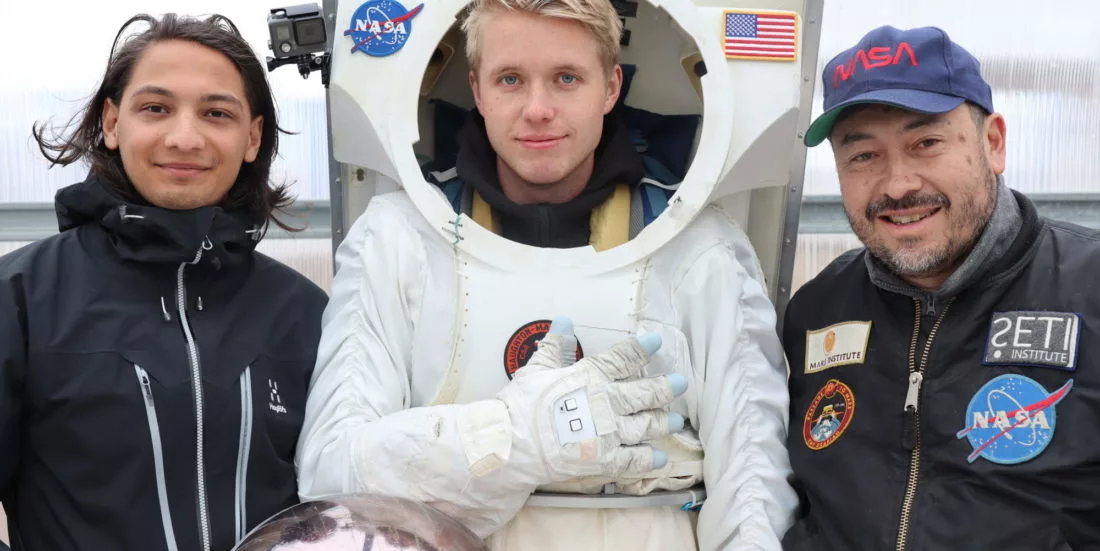Although drones or other robotic devices could certainly help astronauts to explore other planets, controlling the things while wearing spacesuit gloves would be a challenge. It was with this in mind that the sensor-packin' Astronaut Smart Glove was created.
Not only do traditional spacesuit gloves have relatively bulky fingers, but they're also pressurized and therefore rather stiff, making finger movements difficult. As a result, they aren't particularly conducive to tweaking the joysticks of a drone's remote control unit.
Designed by Norwegian startup Ntention, the Astronaut Smart Glove instead uses integrated sensors to detect even very subtle hand and finger movements. These are converted into different types of command signals that are wirelessly transmitted to a mobile device in the spacesuit, which in turn relays them to the drone in real time.
Scientists from NASA's Ames Research Center recently took an interest in the technology, and trialed it this summer on the "Mars-like" Devon Island in the Arctic. The testing was conducted as part of the space agency's Haughton-Mars Project.

Wearing a full spacesuit, glove-users were successfully able to remotely pilot a traditional propeller-driven quadcopter drone – although on thin-atmosphere planets such as Mars, thruster-powered drones would likely be required. That said, the basic system could also be adapted for terrestrial use, in fields such as construction.
Ntention's staff is made up of students from the Norwegian University of Science and Technology, in fields such as industrial economics, cybernetics, robotics, and industrial design. Along with NASA, partners in the development of the Astronaut Smart Glove include the Mars Institute, the SETI Institute, and Collins Aerospace.
You can watch the glove being tested on Devon Island, in the following video.
Sources: Norwegian SciTech News, Mars Institute




